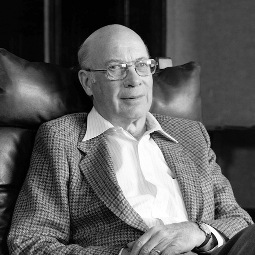A Quote by Ravi Zacharias
The Biblical world-view is the only one that accepts the reality of evil and suffering while giving both the cause and the purpose, while offering God-given strength and sustenance in the midst of it.
Related Quotes
We have only one story. All novels, all poetry, are built on the neverending contest in ourselves of good and evil. And it occurs to me that evil must constantly respawn, while good, while virtue, is immortal. Vice has always a new fresh young face, while virtue is venerable as nothing else in the world is.
Whenever we feel that we are definitely right, so much so that we refuse to open up to anything or anybody else, right there we are wrong. It becomes wrong view. When suffering arises, where does it arise from? The cause is wrong view, the fruit of that being suffering. If it was right view it wouldn't cause suffering.
In USA, a black man only have like five years we can exhibit maximum strength, and that's right now while you a teenager, while you still strong, while you still wanna lift weights, while you still wanna shoot back. 'Cause once you turn 30, it's like they take the heart and soul out of a man, out of a black man, in this country. And you don't wanna fight no more.
The followers of Christ have been called to peace. . . . And they must not only have peace but make it. And to that end they renounce all violence and tumult. In the cause of Christ nothing is to be gained by such methods . . . . His disciples keep the peace by choosing to endure suffering themselves rather than inflict it on others. They maintain fellowship where others would break it off. They renounce hatred and wrong. In so doing they overcome evil with good, and establish the peace of God in the midst of a world of war and hate.
Divine Providence has played a great part in our history. I have the feeling that God has created us and brought us to our present position of power and strength for some great purpose. It is not given to us to know fully what that purpose is, but I think we may be sure of one thing, and that is that our country is intended to do all it can, in cooperating with other nations to help created peace and preserve peace in the world. It is given to defend the spiritual values-the moral code-against the vast forces of evil that seek to destroy them.
While many have doubted the accuracy of the Bible, time and continued research have consistently demonstrated that the Word of God is better informed than its critics. In fact, while thousands of finds from the ancient world support in broad outline and often in detail the biblical picture, not one incontrovertible find has ever contradicted the Bible.
GraceQuest is a gripping story of one man's (and his family's) struggle with tremendous weakness and pain, but it is also a narrative theodicy--defense of God's goodness in spite of the undeniable reality of evil. . . . This is an honest and hard-hitting book about God's grace in and through tremendous loss of health and strength. Readers will find hope and help here if they are open to its message about the God-given 'strength to suffer well.'
Plot involves fragmentary reality, and it might involve composite reality. Fragmentary reality is the view of the individual. Composite reality is the community or state view. Fragmentary reality is always set against composite reality. Virginia Woolf did this by creating fragmentary monologues and for a while this was all the rage in literature. She was a genius. In the hands of the merely talented it came off like gibberish.
Learning is available at the library for free; under a tree with a dog-eared paperback; at a job with a boss who gives you responsibility and mentorship; while traveling; while leading a cause, movement, or charity; while writing a novel or composing a poem or crafting a song; while interning, apprenticing, or volunteering; while playing a sport or immersing yourself in a language; while starting a business; and now, while watching a TED talk or taking a Khan Academy class.



































